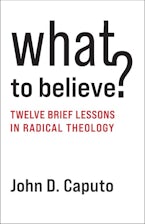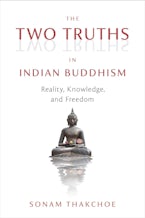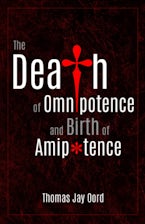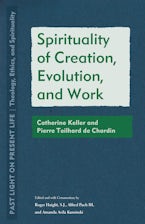- Home
- Philosophy and Psychoanalysis
- philosophy
- psychology
- religion
- Inventing God

Inventing God
Psychology of Belief and the Rise of Secular Spirituality
By: Jon Mills
Series: Philosophy and Psychoanalysis
236 Pages
In Inventing God, Mills makes a provocative philosophical and psychological case for a humanistic spirituality without God. While much of the “new atheist” literature is concerned with critiquing religion and its systematic abuses, Mills’s analysis focuses on the idea of God as such and on ”the underlying psychological dispositions and unconscious conflicts" which account for the human need to “invent” this mental construct (6). The argument proceeds in three steps. The first is elaborated in three sections: an extended “Proslogion,” “Axioms” articulating a “thought experiment” to illustrate that God exists only as an idea, and a first chapter on God as a metaphysical question. Together these sections articulate Mills’s naturalist understanding of the God construct and his argument that there is no compelling empirical evidence for the existence of any entity that corresponds to this idea. The second step elaborates in two chapters the psychological factors that Mills contends explain why so many people over the course of history and across so many cultures have felt compelled to invent and believe in God. The last two chapters sketch the outlines of a spirituality without God. This effort to make room for a spirituality without God or religious doctrine is something of an effort to recapitulate aspects of both John Dewey’s and William James’s projects on new grounds.
Mills is rarely polemical. But the book is clearly not intended as a scholarly analysis of the psychology of belief—though certainly interested students of religion and the book’s general audience can glean much about that topic from the text. Especially in its first two sections, the book makes its case without an engagement of the questions and approaches that religious scholars would find substantial, relevant, and nuanced. Mills writes for a general audience and anticipates that he will be critiqued by academics for not addressing the pertinent issues and literature (2). I expect that many in the general audience who are inclined to agree with Mills’s rejection of God or who experience the spiritual quandaries he describes will find the argument convincing and helpful. I imagine such readers will find in the book a welcome rationale that resonates and answers felt needs. I also anticipate that the book will do less to clarify the issues for those not so inclined.
Discerning readers can learn much from Mills’s description of the underlying psychological dispositions and unconscious conflicts that he believes account for the human need to invent the idea of God. That there is such a need and that the idea of God is a human construct—both of which I would grant—do no not prove in themselves, however, that God is just an idea. The decisive questions which Mills does not address are: what sort of construct is the idea of God and what does it mean to affirm that this God construct is more than just a human idea? Since Mills does not even acknowledge those issues, the cogency of his “case” hinges in large part on his conception of God. His target is God as “a superhuman creator or supernatural supreme agent” whom he believes “the vast majority of believers in monotheism would contend” must be conceived in that way (12-13). This presumes that God must be conceptualized as an entity and that predication and language about God is a matter of straightforwardly affirming a set of attributes or doctrinal beliefs about that entity. But that presumption is not a given. Mills’s citations and critiques of his principal interlocutors (Alvin Plantinga, Richard Swinburne, William Lane Craig, and David Bentley Hart) is limited and narrow. The references serve his apologetic needs but do not seriously engage alternative nonentitative conceptualizations of God, or of religious predication as metaphorical and analogical. In this respect, like many of the new atheists, Mills does not do much to advance understanding of the crucial questions.
Mills’s overview of the psychological dispositions and unconscious conflicts which he argues are entailed in belief are intriguing; so also the sketch of elements entailed in a secular spirituality. That there can be pathological and inauthentic spiritualities is not news. Mills is silent, or at least ambiguous, about whether from his perspective religious faith can be authentic and genuinely spiritual. His only examples of religious belief are not. It is hard to imagine that he denies authentic self-actualization and individuation to all people of faith. It would have been interesting to learn if on his terms there can be such a phenomenon and if so to see a serious comparative analysis with his notion of secular spirituality.
Robert Masson is professor emeritus in theology at Marquette University.
Robert MassonDate Of Review:September 19, 2017
Jon Mills, Psy.D., Ph.D., ABPP is a philosopher, psychoanalyst, and clinical psychologist. He is Professor of Psychology & Psychoanalysis at the Adler Graduate Professional School in Toronto and is the author of many books in philosophy, psychoanalysis and psychology. Recipient of many awards for his scholarship, he received the Otto Weininger Memorial Award for lifetime achievement in 2015, given by the Canadian Psychological Association. He runs a mental health corporation in Ontario, Canada.











